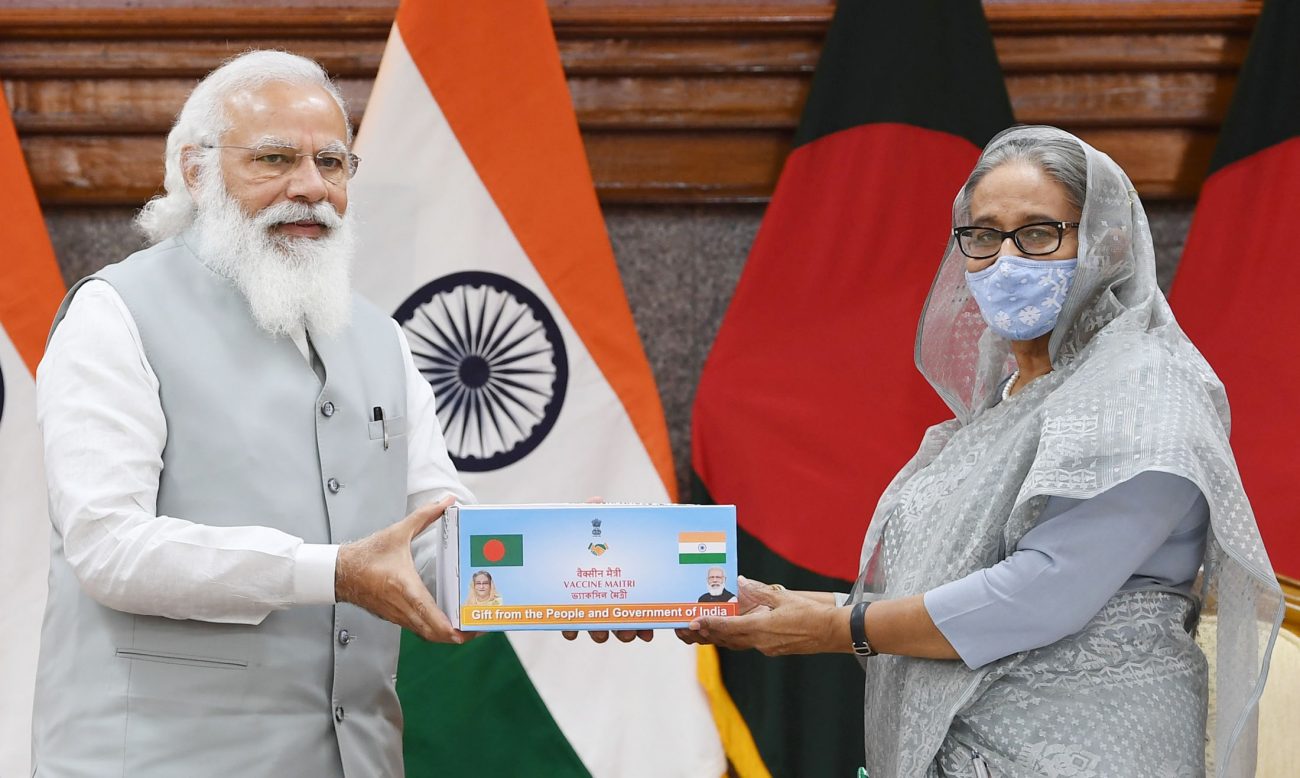Lending another punch to already frayed ties between India and Bangladesh, Dhaka has recalled its envoy from New Delhi. The interim government in Bangladesh is undertaking a major diplomatic reshuffle and has also recalled four other envoys from Australia, Belgium, and Portugal.
At the same time, the country that saw a major civil uprising leading to the ouster of Prime Minister Sheikh Hasina has been fostering stronger ties with Pakistan. Bangladesh National Board of Revenue (NBR) has eliminated the mandatory physical inspection of goods imported from Pakistan as part of ease of doing business.
Pakistan has been the only country singled out for this benefit, raising concerns that this may lead to the illegal transfer of arms and contraband. Pakistan and Bangladesh also have a shared past.
Following independence in 1947, Bangladesh became part of Pakistan and was known as East Pakistan. It gained independence from Pakistan in 1971.
Bangladesh’s septuagenarian four-time elected Prime Minister, Sheikh Hasina had to flee the country on August 5 following a month-long violent student protest.
The Bangladesh Army announced the formation of an interim government under Nobel Laureate Mohammad Yunus. Hasina’s fall was another loss of a friend in the long list of countries with whom India’s relationship is on shaky grounds.
Sheikh Hasina has been one of India’s most reliable allies in a neighborhood fraught with anti-Indian feelings. Acknowledged as the “big power” in South Asia, India’s standing in the region has been adversely affected by China’s inroads. Prime Minister Narendra Modi and Sheikh Hasina met for a record 10 times in 2023.
Yunus has publicly expressed a desire to improve ties with India, but he wants India to extradite Hasina to face trials. The former Bangladesh prime minister has been in India since the Bangladesh military’s C-130 carrying her landed at Hindon air base in September.
Yunus said that Hasina should remain “quiet” until Dhaka asked for her return.
Despite the public comments, Prime Minister Modi and Yunus have yet to hold a bilateral meeting. Efforts to organize one during Modi’s recent visit to the US did not yield desired results. Modi completed his work and returned to New Delhi as Yunus was arriving to attend the United Nations Summit of the Future.
Indian External Affairs Minister S. Jaishankar, however, met his Bangladeshi counterpart Md. Touhid Hossain on September 23 on the sidelines of the United Nations General Assembly in New York.
Hence, the recalling of the Bangladeshi envoy to India has been another blow to the ties. The following mission leaders have been called back to Dhaka: Mustafizur Rahman, the High Commissioner to India; Muhammad Abdul Muhith, the Permanent Representative to the United Nations; M Allama Siddiqui, the High Commissioner to Australia; Mahbub Hassan Saleh, the Ambassador to Belgium; and Rezina Ahmed, the Ambassador to Portugal.

After Hasina’s ouster, India’s former Foreign Secretary Nirupama Menon Rao cautioned New Delhi about the situation’s strategic dilemmas.
“Today, as we see momentous happenings in Bangladesh and when the voice of the people has seen the flight of Prime Minister Sheikh Hasina from the country, we must weigh our reactions and policy moves with both caution and a capacity to think on our feet with agility, a clear focus and foresight. We cannot afford any misstep. There are strategic dilemmas involved here. Whatever we do, we must protect our long-term national interest,” she wrote on X.
Bangladesh is crucial for India to connect its geographically isolated northeastern states with the Bay of Bengal. The two nations share over 4,000 km of land borders and maritime boundaries in the Bay of Bengal.
Stronger Ties With Pakistan
Bangladesh has scrapped the mandatory 100 percent physical inspection of all imported goods from Pakistan, a decision that aims to expedite Customs clearance and improve trade efficiency.
The move follows Prime Minister Shehbaz Sharif’s meeting with Bangladesh Chief Adviser Dr Muhammad Younis late last month in New York, which was held on the margins of the United Nations General Assembly (UNGA) summit.

Earlier, shipments from Pakistan went through ‘Red Lane,’ a high-risk classification that requires both documentary review and physical inspection.
Bangladesh imports a wide range of products from Pakistan, including cotton, yarn, chemicals, wheat, plastic materials, leather, and petroleum products. Other notable imports include food items such as baby food, rice, and fruits, as well as surgical equipment and electric fans.
The Pakistani media quoted sources saying the removal of mandatory inspections will reduce delays and potentially lower costs. The Indian experts are afraid that this would also ease the movement of contraband, like arms and ammunition as well.
In fiscal 2022-23, Bangladesh’s imports exceeded $68 billion, of which goods imported from Pakistan amounted to $699 million. Exports to Pakistan were around $74 million during the period. Most of the imported goods consist of raw materials for the garment industry.




